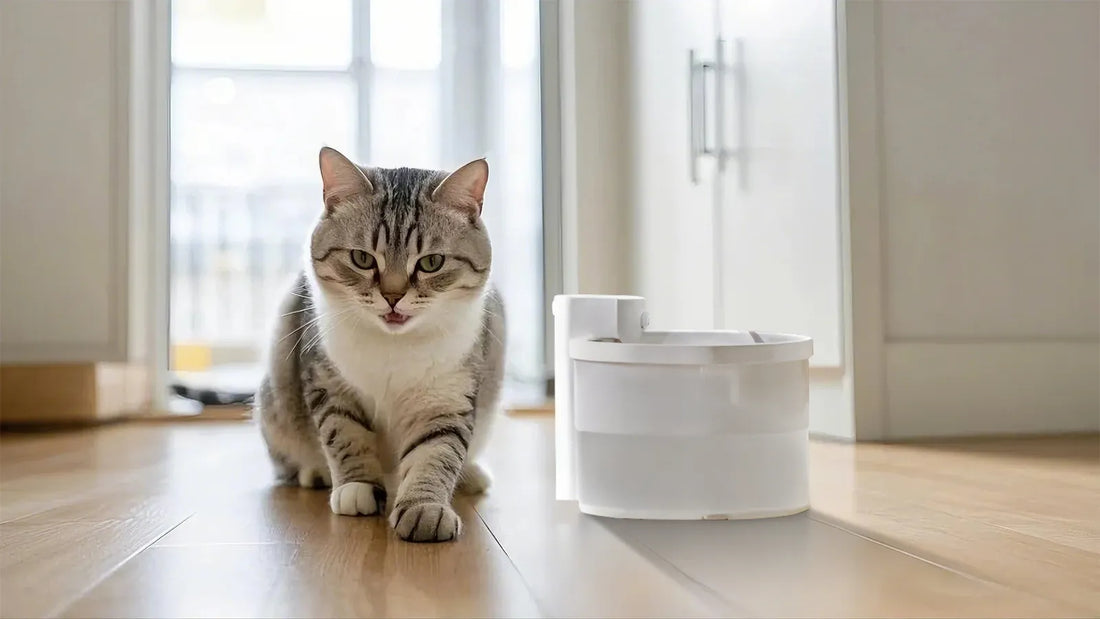Pet owners often face the challenge of managing pet odors in their homes. Whether it's the lingering smell of wet fur, litter boxes, or accidents, these odors can be persistent and unpleasant. One solution that many turn to is air purifiers. But do air purifiers eliminate pet odors? Let's dive into the details to understand how air purifiers work and whether they can effectively tackle pet-related smells.
Understanding Pet Odors
Pet odors are caused by a combination of factors, including dander, urine, feces, and saliva. These substances release volatile organic compounds (VOCs) and other particles into the air, which can linger and create unpleasant smells. Additionally, pets can bring in outdoor odors, such as dirt and pollen, which can further contribute to the overall scent profile of your home.
How Air Purifiers Work
Air purifiers are designed to improve indoor air quality by removing contaminants from the air. They typically consist of a fan and a series of filters. The fan draws in air from the room, and the filters capture particles and pollutants. The most common types of filters used in air purifiers include:
- HEPA Filters: High-Efficiency Particulate Air (HEPA) filters are capable of capturing 99.97% of particles that are 0.3 microns in size or larger. This includes pet dander, dust, and other allergens.
- Activated Carbon Filters: These filters are effective at adsorbing odors, gases, and VOCs. They work by trapping odor molecules in the porous structure of the carbon.
- Pre-Filters: These are the first line of defense and capture larger particles like pet hair and dust, prolonging the life of the main filter.
- UV-C Light: Some air purifiers use ultraviolet light to kill bacteria and viruses, which can also help reduce odors caused by microbial activity.
Do Air Purifiers Eliminate Pet Odors?
Yes, air purifiers can help eliminate pet odors, but their effectiveness depends on the type of filter used and the specific odor source. Here's how different filters contribute to odor elimination:
- HEPA Filters: While HEPA filters are excellent at capturing pet dander and other allergens, they are not specifically designed to eliminate odors. However, by removing the particles that can carry odors, they can indirectly help reduce the overall smell.
- Activated Carbon Filters: These are the most effective at eliminating pet odors. The activated carbon adsorbs the odor molecules, neutralizing the smell. For best results, look for an air purifier with a substantial amount of activated carbon.
- Combination Filters: Many air purifiers use a combination of HEPA and activated carbon filters, providing comprehensive odor and particle removal.
Factors to Consider When Choosing an Air Purifier for Pet Odors
When selecting an air purifier to tackle pet odors, consider the following factors:
- Filter Type: Ensure the air purifier has an activated carbon filter or a combination of HEPA and activated carbon filters.
- Room Size: Choose an air purifier that is suitable for the size of the room where it will be used. Most air purifiers specify the maximum room size they can effectively cover.
- Air Changes per Hour (ACH): This refers to how many times the air purifier can filter the entire volume of air in a room in one hour. A higher ACH means more frequent air cleaning, which can be beneficial for persistent odors.
- Noise Level: Consider the noise level of the air purifier, especially if it will be used in a bedroom or other quiet space.
- Maintenance: Check the cost and frequency of filter replacements. Some air purifiers require more frequent filter changes, which can add to the overall cost.
Tips for Maximizing the Effectiveness of Air Purifiers
To get the most out of your air purifier in eliminating pet odors, follow these tips:
- Regular Cleaning: Keep your home clean by regularly vacuuming, washing pet bedding, and cleaning litter boxes. This will reduce the amount of odor-causing particles in the air.
- Proper Placement: Place the air purifier in the room where the odors are most concentrated. For example, if your pet spends most of its time in the living room, that's where the air purifier should be.
- Run Continuously: For best results, run the air purifier continuously, especially in areas with persistent odors. Many air purifiers have a low-energy mode for continuous operation.
- Replace Filters as Needed: Follow the manufacturer's recommendations for filter replacement. Over time, filters can become saturated and less effective at capturing odors and particles.
Other Methods to Reduce Pet Odors
While air purifiers can be effective, they are just one part of a comprehensive approach to reducing pet odors. Consider these additional methods:
- Grooming: Regular grooming can help reduce the amount of dander and loose fur that your pet sheds, which can contribute to odors.
- Ventilation: Open windows and use fans to improve air circulation and reduce odors.
- Odor Neutralizers: Use odor-neutralizing sprays or powders designed for pet odors. These products can help break down odor molecules rather than just masking them.
- Pet Training: If your pet has accidents, consider training them to use a designated area or litter box to minimize odors.
Air purifiers can be a valuable tool in the fight against pet odors, especially when used in conjunction with other odor-reducing strategies. By understanding how air purifiers work and choosing the right one for your needs, you can enjoy a fresher, cleaner-smelling home. So, if you're tired of dealing with persistent pet odors, it might be time to invest in an air purifier and take the first step toward a more pleasant living environment.













